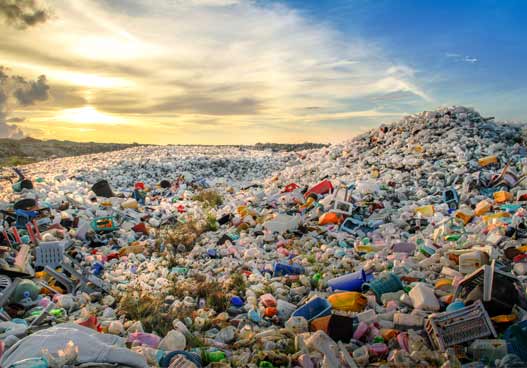It’s time to act on plastic waste
A review of recent developments in tackling this global issue
"Never before have we had such an awareness of what we are doing to the planet, and never before have we had the power to do something about that."
- David Attenborough, Blue Planet II.

Over the past few months the news has been dominated with headlines focusing on the amount of plastic currently being used - and wasted - in the UK, with shocking images of UK coastlines lined with old plastic bottles and other waste in the wake of powerful storms filling our screens. Even David Attenborough’s Blue Planet II chose to raise awareness of this issue and highlighted the detrimental effects that plastic waste is having on marine wildlife.
It is estimated that 8.3 billion tonnes1 of plastic have been produced across the world since the 1950s. Since 2012 alone, British businesses have shipped more than 2.7 million tonnes2 of plastic waste to China and Hong Kong - that works out as two thirds of the UK’s total plastic waste exports. However, on the 1st January 2018, China enforced much stricter restrictions on imported cardboard waste and banned the importation of all plastic waste and mixed paper rubbish from across the globe.
What now?
Since these enforcements were announced back in 2017, environmental organisations, businesses and the UK government have focused their attention on finding a solution to the country’s over-consumption of plastic and poor plastic recycling rates.
UK Environment Secretary Michael Gove has spoken about a four-point action plan, which proposes to cut the total amount of plastic in circulation, reduce the number of different plastics in use, increase rates of recycling and standardised recycling policies and simplified recycling rules within local authorities to make it easier for people to judge what waste can be recycled.
Published shortly after, the UK government’s 25 Year Environment Plan3 committed to achieving zero avoidable plastic waste by the end of 2042.
At the consumption level, the Environmental Audit Committee published a report urging the government to introduce a 25p “latte levy”4 on single-use coffee cups in an attempt to reduce waste and encourage the use of reusable cups among consumers. The report stated that 2.5 billion disposable coffee cups are thrown away in the UK each year but only 0.25% are recycled.
Disposable coffee cups contain a plastic lining which makes them costly to recycle and according to their report, the Environmental Audit Committee states that most are not recycled because the UK has only three facilities that can split the paper and plastic components. The report concluded with a suggestion to ban all disposable coffee cups by 2023 if they are not all being recycled.
What are the big brands doing?
An idea that has proved popular with major retailers, including the Co-op, Iceland, Tesco and Coca-Cola European Partners, is the introduction of a plastic bottle deposit return scheme. Backed by the Environment Secretary, the scheme involves refunding a small surcharge paid by consumers when bottles are returned.
Leading retailers have also recognised their responsibilities in reducing plastic waste and have made their own commitments including Coca-Cola’s pledge to recycle all packaging by 2030. This forms part of the company’s “World Without Waste” initiative which also aims to increase the amount of recycled content in the materials used to make its plastic bottles.
Similarly, Iceland have pledged to drastically reduce plastic packaging of its own-label products by 2023, replacing packaging with paper and pulp trays that could be recycled through domestic waste collections or in-store recycling facilities.
Our Sales Director, Lee Hill, knows just how big an impact plastic waste can have on the environment and on your business.
“At home or at our place of business we can all play a vital role to help in the reduction and recycling of our plastic waste. Awareness is here and we can all make a difference. It is now just about conscious effort.”
Call us on 0800 169 3534 to find out how our balers can help you recycle plastic and cardboard waste more efficiently.
1 Production, use, and fate of all plastics ever made. Geyer et al. Science Advances, Vol 3, no.7, 2017.
(http://advances.sciencemag.org/content/3/7/e1700782.full)
2 From an analysis of customs data by Greenpeace (https://unearthed.greenpeace.org/2017/12/07/china-plastic-scrap-ban-crisis-uk-recycling/)
3 UK government 25 Year Action Plan
(https://www.gov.uk/government/uploads/system/uploads/attachment_data/file/673203/25-year-environment-plan.pdf)
4 Environmental Audit Committee report. “Disposable Packaging: Coffee Cups.”
(https://publications.parliament.uk/pa/cm201719/cmselect/cmenvaud/657/657.pdf)